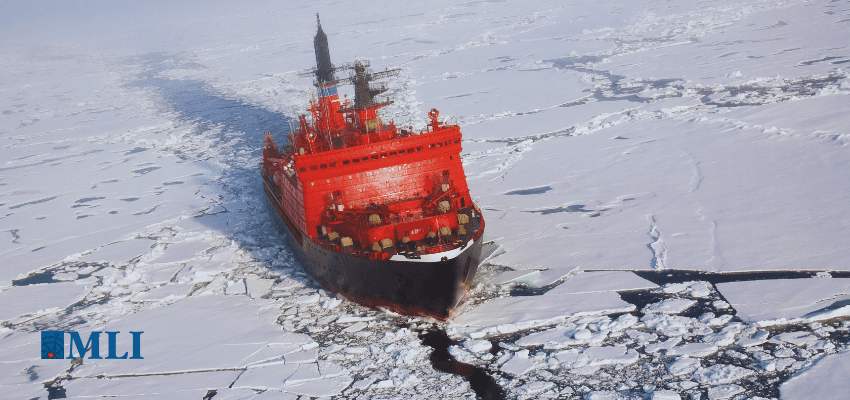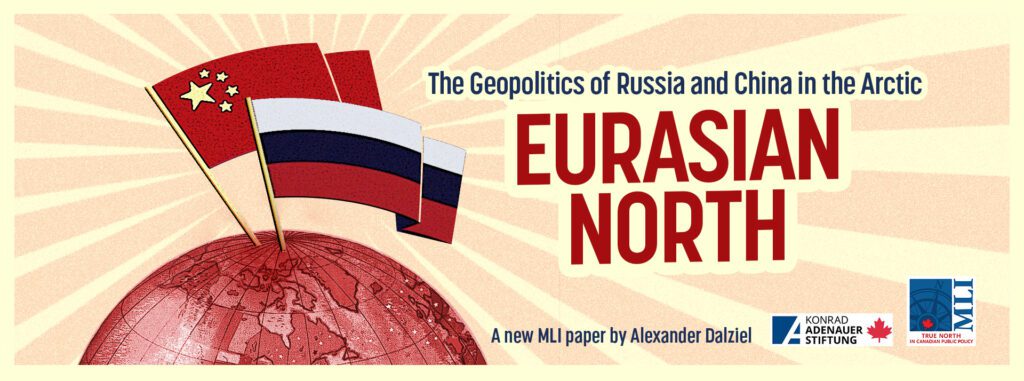This article was originally published as part of a collection of Essays, 360° View of America’s “ICE Pact” Polar Icebreaker Partnership with Canada and Finland, published by the Wilson Center on July 16, 2024.
By Heather Exner-Pirot, July 17, 2024
The ICE Pact signed between Canada, Finland and the US on the sidelines of last week’s NATO Summit marks an important step in bolstering the West’s icebreaker shipbuilding capacity.
While Russia has steadily expanded its world-leading fleet, and China is making significant inroads, Canada and the US have let their icebreakers age and their shipbuilding capacity atrophy. Even with the recent resolve to reverse trend and commit billions in new dollars to icebreakers, previous neglect has led to shipbuilding programs that are frequently over time and over budget. The US, notably, lacks yard capacity, specialized workforce, and experience in icebreaker shipbuilding, and has faced continuous delays in its Polar Security Cutter program. The ICE Pact aims to turn the ship around.
The Russians are dominant in icebreaking capacity, with a fleet of over 30 diesel powered icebreakers and the world’s only nuclear icebreakers. Adding to its Arktika and Tamyr class nuclear icebreakers, Russia has already launched three powerful new icebreakers as part of its Project 22220, with two more expected in 2024 and 2026. It committed to the 6th and 7th vessels in the fleet’s series in 2023, for delivery by the end of the decade.
Russia is an Arctic icebreaking pacesetter because its economy depends far more on its northern maritime route than anyone else. As western sanctions limit its market for Arctic LNG and oil to more accessible Europe, it increasingly has to move its products east, through the seasonally ice-covered Northern Sea Route, to reach Asian customers. This is driving icebreaking demand.
By contrast, Alaskan and Norwegian maritime trade is plied through ice free waters, and resource development and maritime trade through Canada’s Northwest Passage is still minimal. Many of the icebreakers Canada’s coast guard operates are dedicated to keeping the Great Lakes and St. Lawrence Seaway open in winter. Likewise, most of Finland’s and Sweden’s icebreakers are used for the Baltic Sea’s winter.
But Russian icebreaking is not just limited to economic development anymore. Its first armed combat icebreaker, the Ivan Papanin, is in sea trials and scheduled to join Russia’s Northern Fleet by the end of 2024. And China is quickly gaining capacity, having commissioned its fourth polar-capable vessel, the Jidi, last week.
The ICE Pact is a response to the West’s relative, and untenable, weakness. Canada has been enhancing its icebreaking program for several years now, and Finland has long been a leader in both ice vessel technologies, through Aker Arctic; and shipbuilding, through Helsinki Shipyards. Western sanctions dried up the latter’s Russian contracts, leaving it looking for new investors. Quebec-based shipbuilder Davies snapped it up in 2023. Helsinki Shipyards’ know-how is now supporting Davies’ ambitious icebreaking program, led by government contracts for ten new ice breaking vessels: a flagship polar icebreaker, six heavy program icebreakers, and three medium icebreakers.
But that’s not all. On the west coast in Vancouver, Seaspan has already delivered three new icebreaker vessels for the Canadian Coast Guard, with a fourth to be delivered early next year. It is also designing and building Canada’s other heavy polar icebreaker and is well into the design of up to 16 additional medium icebreaker vessels that would be built and delivered over the next two decades. Finally, in Halifax, Irving has delivered four of its Arctic Offshore Patrol Vessels to the Royal Canadian Navy, with two more nearing completion for the Navy and two more being constructed for the Coast Guard.
Icebreakers are a niche and highly complex ship design. The NATO alliance will save time and money, as well as enhance its preparedness and capabilities, by leveraging its best asset: the ability to work together. The ICE Pact is a smart move and will help counter Russia’s dominance in the icebreaking field.
Heather Exner-Pirot is a Global Fellow for Polar Institute, Canada Institute, and Wahba Institute for Strategic Competition and the Director of Energy, Natural Resources and Environment, Macdonald-Laurier Institute.







